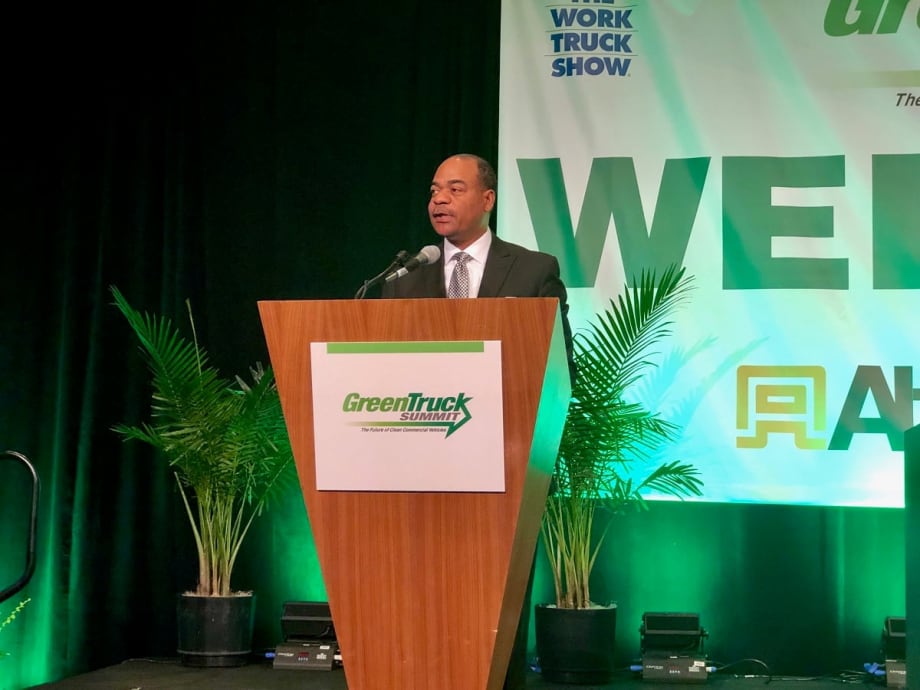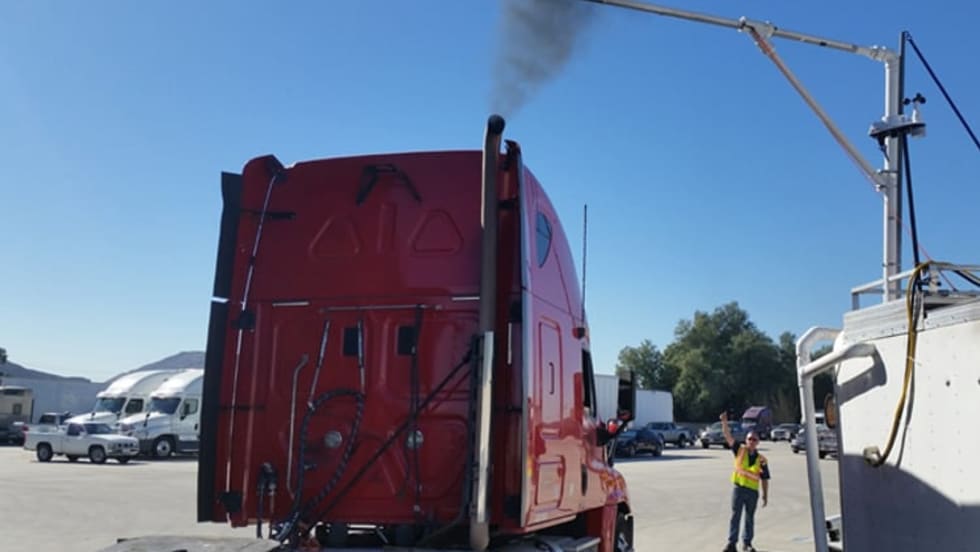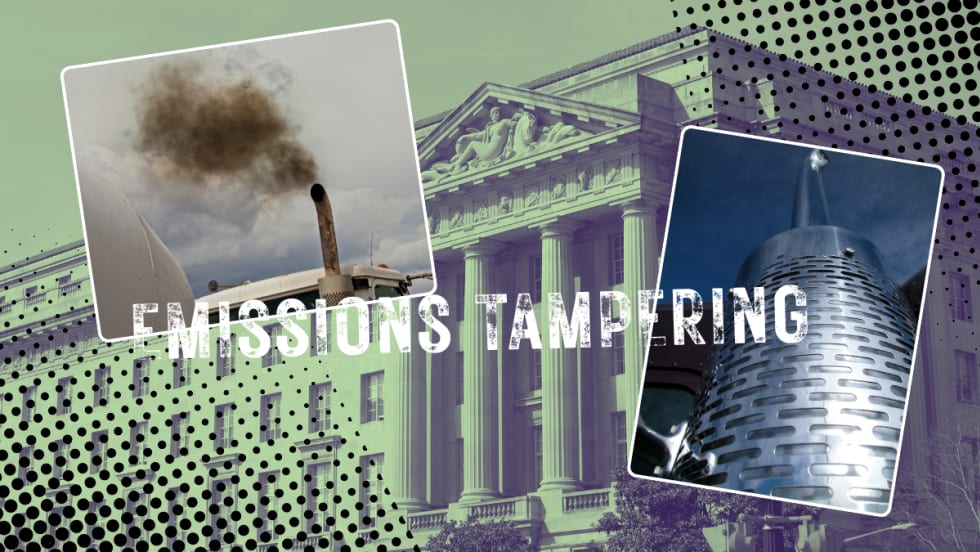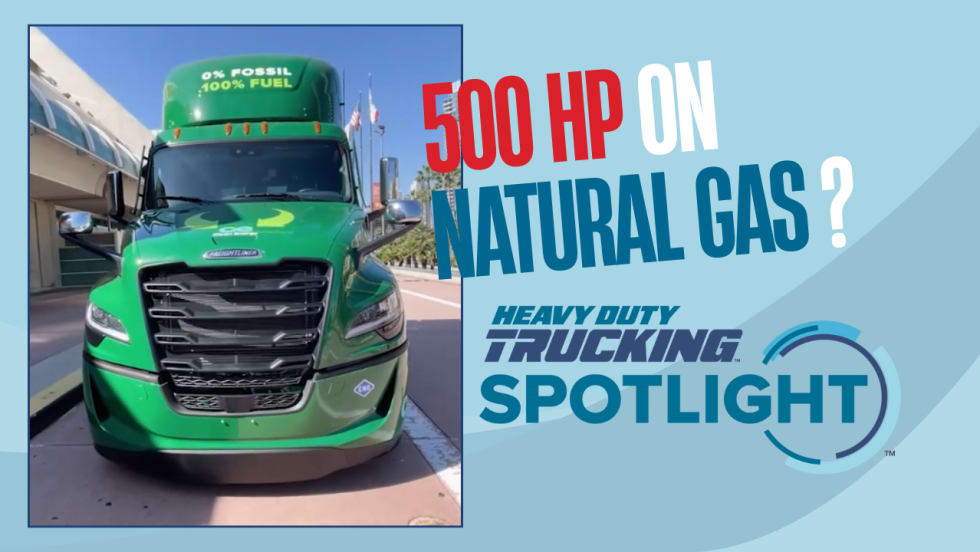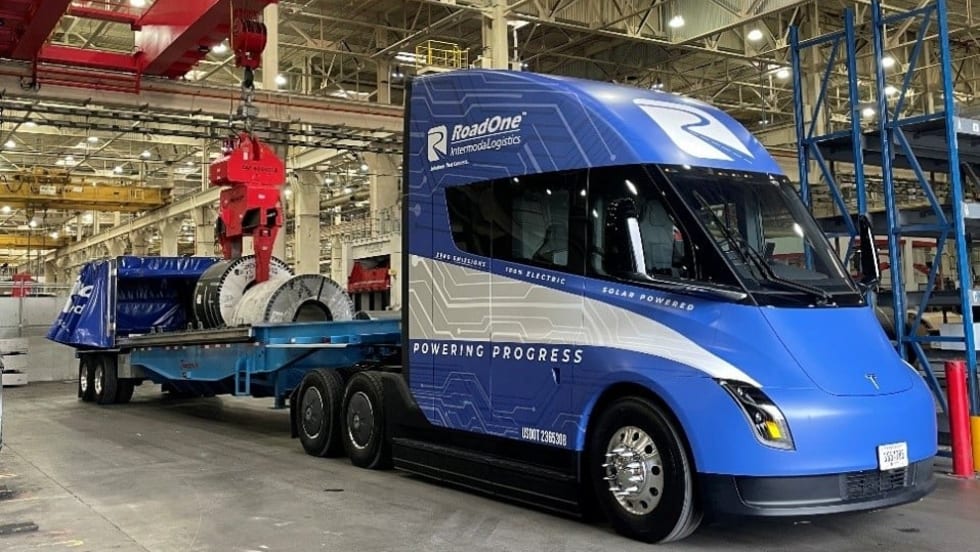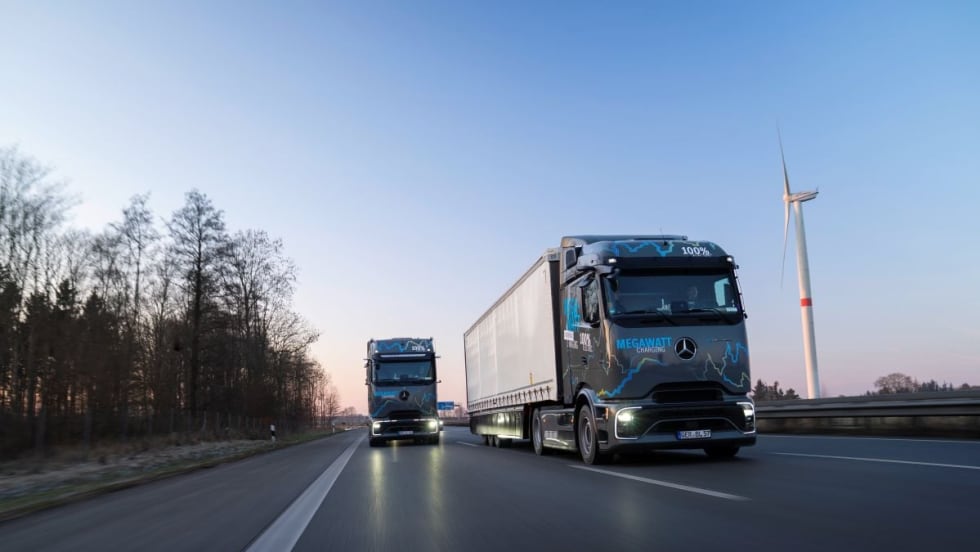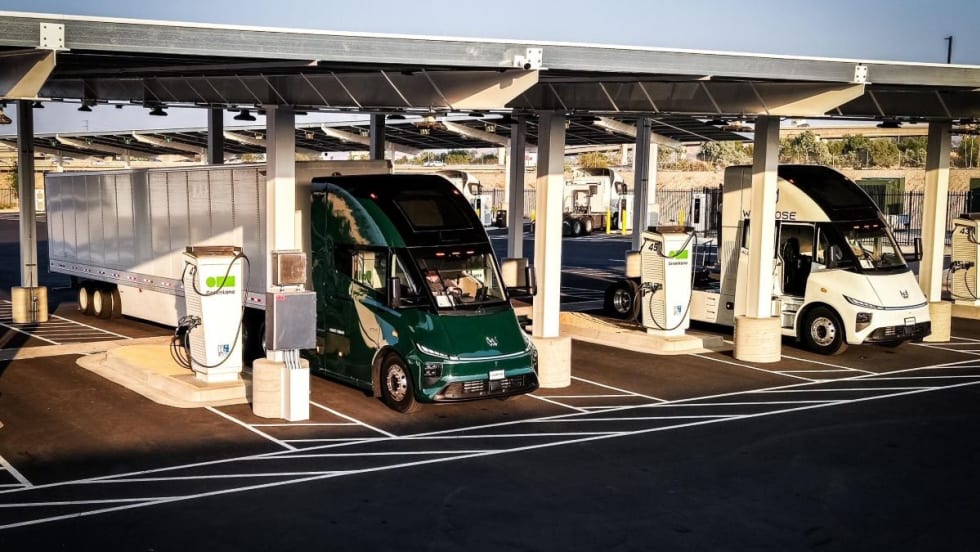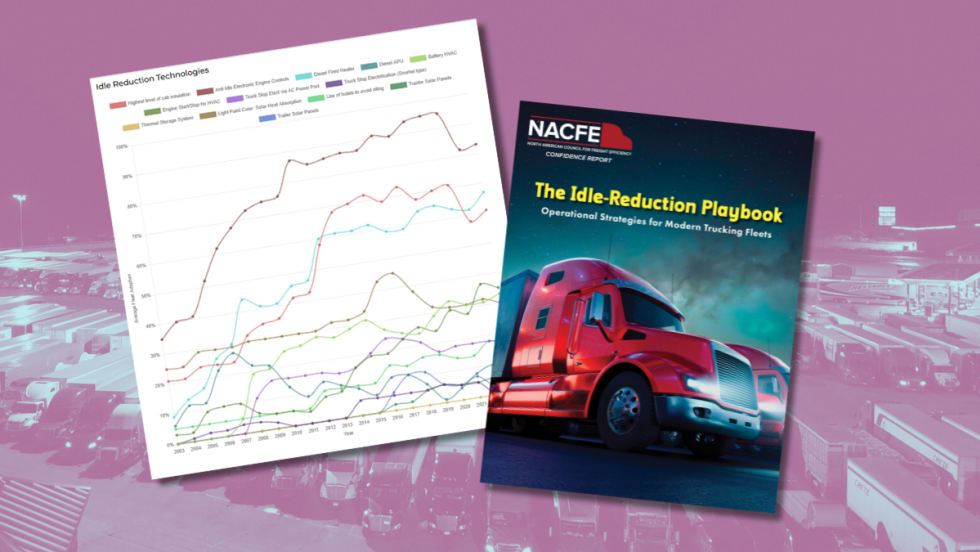Outside the Indianapolis Conference Center early on March 5, with the thermometer barely touching double digits, it was cold enough to burn your breath away. Inside, was another story. Where the Green Truck Summit was getting under way ahead of the NTEA Work Truck Show, the air was fairly crackling with the excitement that stirs when truckers talk electric trucks.
Carlton Rose, president of global fleet maintenance and engineering at UPS, made it clear where the global package-delivery behemoth stands. “The way of the future,” he said in his keynote address, “is electric.”
It’s easy to see why, Rose explained. The desire for clean — and quiet trucks — is growing due to the global trend to urbanize and the accompanying rise in online commerce. Together, these market forces are driving up traffic and thus vehicle emissions in the cities around the world, in which more people than ever are living.
Rose said he is “convinced that electric propulsion will become a significant part of the UPS fleet in the near future.” On the other hand, he allowed that he has “one big problem with predictions — they are wrong more than they are right. That’s because predictions rest on our assumption that the future will be like the past.”
Although UPS already runs 1,000 battery electric and hybrid-electric trucks, he cautioned that the technology is but in its infancy. “Commercial electric trucks are still a work in progress.” An issue that must be overcome is range anxiety. “If you have a vehicle that will only go 100 miles, a delivery driver can’t go out 51 miles,” Rose pointed out. He also pointed to the lack of available and standardized charging infrastructure as another key challenge— and a global one at that.
“UPS has joined a U.K.-based consortium to develop fast charging without impacting the electrical grid,” he noted, adding that there is now “a golden opportunity for electric utilities” to prepare for meeting the demand for juice to power all those electric trucks and cars headed to the highways and city streets.
Why then is UPS still working with electric trucks in its “rolling laboratory” fleet of alternatively powered vehicles? Because, said Rose, “We’re a company that will not let perfect get in the way of good.” He may see electric trucks in UPS’ future, but they will still have to earn their spot and, over time, their keep. “Fleets want solutions that work. If the technology doesn’t work, it doesn’t matter what it costs or what subsidies are in place [to help pay for it].” He noted that he “knows what works for the UPS fleet won’t work for all fleets.
Rose said that “there won’t be widespread adoption [of electric trucks] until these vehicles present businesses with the best choice.” But he also contended that “electric has the potential to be more than another alternative option. The shift to electric could be transformational,” as it can be a platform to enable drive by wire, brake by wire and connectivity on vehicles.
He stressed that the company aims to be part of the green solution, be that with electric trucks or other forms of alternative power. “We play in all the options available. We do that on purpose,” he said, noting that UPS currently runs some 6,000 natural gas trucks. “We know that by trying different propulsions, other people will get in” the market and help advance the technology.
“We’ve always been an early adopter of innovative technologies,” Rose said. Because 6% of all goods shipped globally moves through the UPS delivery system at one point or another, the company “can help move markets” with its leadership.
As an example, he pointed to how UPS was engaged early on with Tesla’s Semi electric truck by pre-ordering some back in 2017. He said that helped push existing truck makers into developing electric models.“Our goal is to get original equipment manufacturers to enter the market,” Rose explained. “When Tesla came in, others started jumping in. That gave us what we want— options.”




